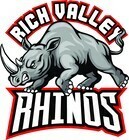Our classroom will consist of a safe environment where students will feel free to be risk takers. It will be a classroom where students will respect each other as well as their peers. Our classroom encourages children to see themselves as readers, writers, problem solvers and critical thinkers. We value the process as well as the product, and understand that all children are unique individuals.
Our daily literacy lessons will consist of the following:
Read Aloud - Teacher reads stories / poems that are at or above the students’ independent and guided reading levels. This familiarizes students with book language, story structure, descriptions, plot development, concepts of print, phonics and phonemic awareness, and the love of literature.
Shared Reading - Provides the beginning support that enables children to read independently. The teacher reads a story to the whole group or class. During rereading, the children participate, reading more and more of the text.
Guided Reading - A small group, teacher-directed process that helps the children to develop the reading strategies they need to become independent readers.
Independent Reading - Provides opportunities during the day for children to practice and internalize strategies learned during shared and guided reading, using many different types of text.
Write Aloud / Modeled Writing - The teacher models the processes an author uses in planning and writing a story or other product, for the whole class or a small group.
Shared Writing - The teacher and the children work together through the processes that occur in writing: concepts and conventions of print, sound/symbol relations, phonics, and spelling.
Guided Writing - The children write with or for the teacher, following the same processes as Shared Writing.
Independent Writing - Children learn to write by writing for their own purposes and from their own experiences. They learn to think of themselves as authors, making good writing decisions while employing the entire Writing Process (from first draft through editing to "published" product). Additional practice of discrete skills may be in the form of directed writing involving short writing assignments.
Science - we will analyze measurable properties of objects and physical changes, investigate characteristics of movement, analyze seasonal changes and their effects on plants and animals, investigate plants and animals and the relationships among them, order and follow instructions, as well as, describe the steps of an investigation and make predictions, observations and conclusions.
Social - we will be learning about “My World: Home, School and Community” and “Moving Forward with the Past: My Family, My History, My Community”.
Math - we will build on skills learned in Kindergarten. We will be learning about number and what number is, as well as build on important math concepts including sorting, counting, classifying, patterns, measurement, and addition and subtraction.
